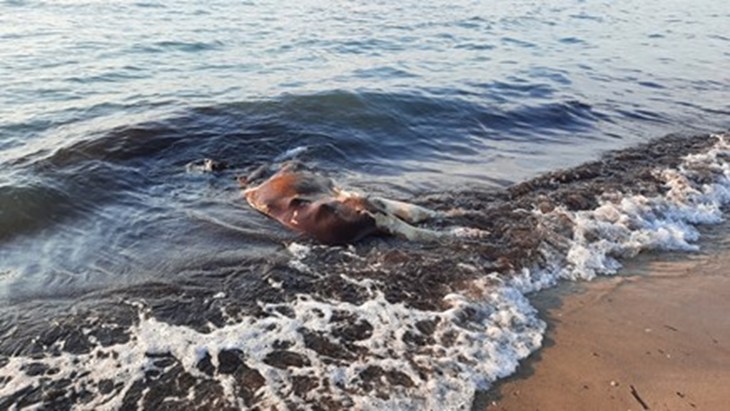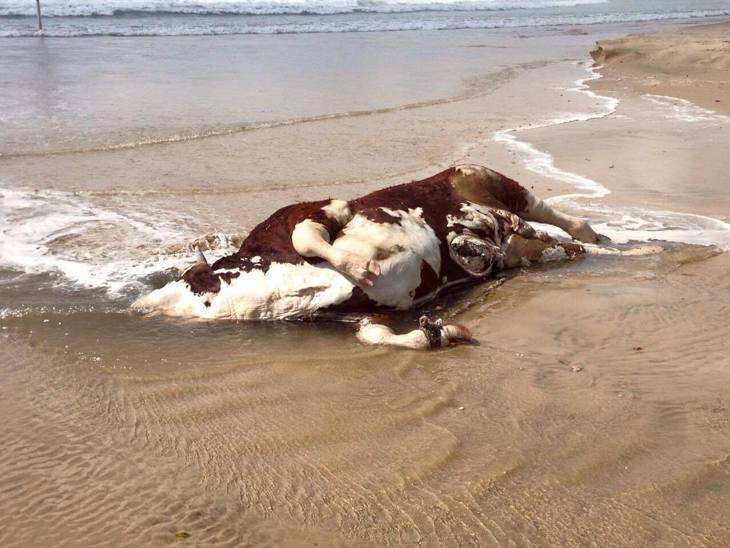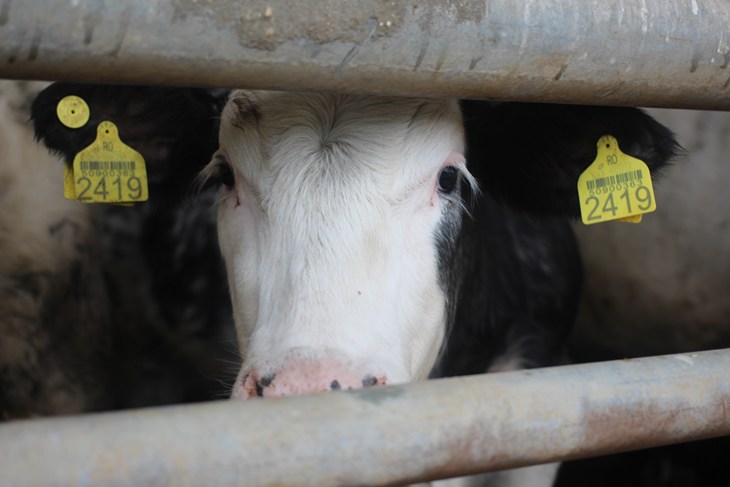The increasing number of animals exported from the EU by sea is posing serious risks to animal welfare, human health and the environment. In Europe, dead animals have repeatedly been washed ashore on beaches. The latest case was recorded on 5 July, when the body of a dead bull was found on a beach on the Greek island of Kos.

Not an isolated case
"This is not an isolated case," said Olga Kikou, Head of Compassion in World Farming EU. "In December last year, 16 dead sheep from France were found on a beach in Greece, in various stages of decomposition. The French competent authorities were contacted and provided with the ear tag numbers of the animals, but even then the French civil servants couldn't trace the transport company that was responsible for this. This makes it impossible to enforce the rules currently in place."
The illegal discarding of dead animals in marine protected zones like the Mediterranean and the Black Sea, as well as the uncontrolled disposal of manure, are well-known problems related to live export of animals form the EU to third countries. A recent study requested by the European Parliament's special Committee on animal transport fund that live exports by sea are often in violation of the International Convention for the Prevention of Pollution from Ships (MARPOL). However, the enforcement of the MARPOL convention currently seems impossible. There are no facilities, neither in the EU departure ports, nor in the destination ports outside the EU, where dead animals and manure can be safely disposed. Moreover, there is a lack of traceability since the ear tags of dead animals are often cut off before their bodies are thrown overboard. This prevents the traceability of the origins of the animals washed ashore and hinders the legal prosecution of offending transport companies.

Documenting abuses
The German NGO Animal Welfare Foundation (AWF) has been investigating violations regarding sea transports since 2014. “We have set up a database of media articles and further reports demonstrating the ongoing illegal disposal of dead animals in the Mediterranean and the Black Sea. These animals are the victims of a cruel transport industry”, says Maria Boada, project manager at AWF.
AWF has published a study in collaboration with Tierschutzbund Zürich (TSB Zürich, Switzerland) and Robin des Bois (France) on the seaworthiness of 78 EU-approved livestock carriers. The study reaches a devastating verdict: Livestock carriers are the most dangerous vessels in the world. With an average of 41 years of age, the vessels are too old, they contribute to the pollution of the seas, are the cause of enormous animal suffering, mostly drive under black flags of convenience and have been approved as seaworthy by dubious companies.
“We are concerned that live exports by sea could be detrimental to public health. Especially when beach goers are exposed to discarded bodies of farm animals," added Maria Boada. "Normally, the public is shielded from intensive farming, but when these lines are crossed there is a danger of spreading zoonotic diseases. These high-risk transports have to be stopped immediately for the benefit of the animals, the environment, and public health”, she concluded.
